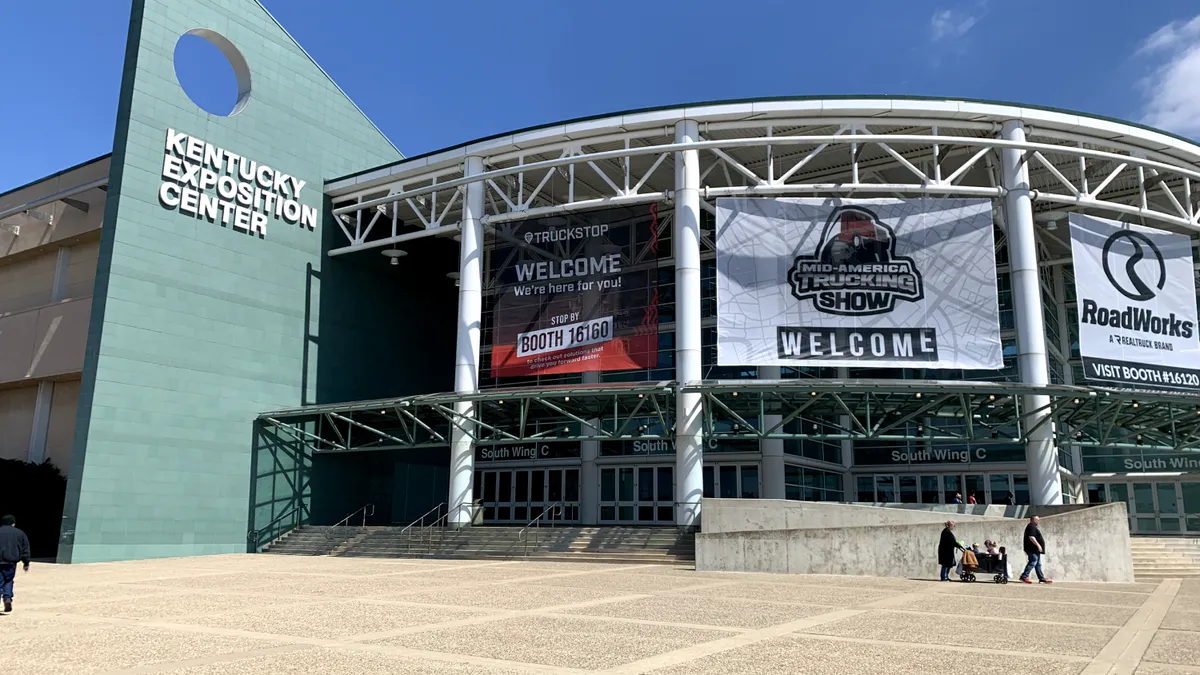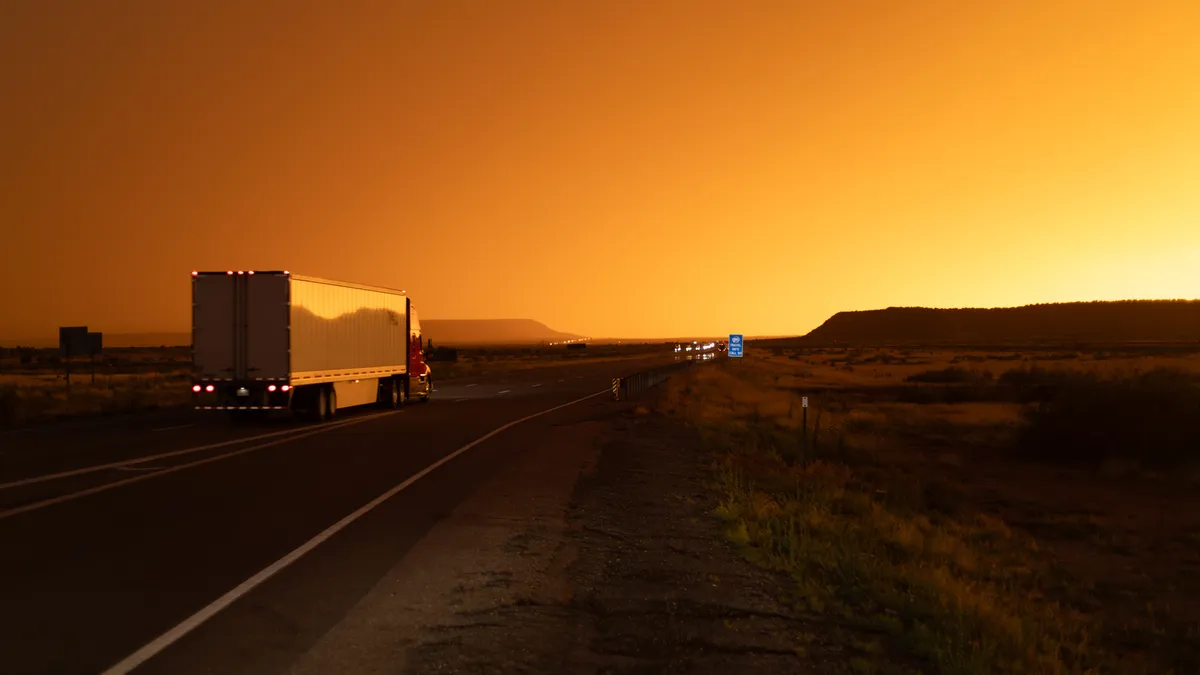Dive Brief:
- Kodiak Robotics intends to go public via a merger with Ares Acquisition Corp. II, a special purpose acquisition company, at a $2.5 billion pre-money valuation, according to a Monday press release.
- The autonomous vehicle technology company, founded in 2018, believes that entering the public markets will fast-track its plan to expand partnerships, reach a larger customer base and offer better solutions to the trucking industry, said Don Burnette, Kodiak’s CEO, in the release.
- While the SPAC deal is subject to shareholder approval, the companies expect the transaction to close in the second half of 2025. Kodiak AI — the newly formed firm — would be listed on the New York Stock Exchange under the ticker symbols KDK and KDK WS, respectively.
Dive Insight:
The agreement comes after Kodiak expanded its partnership with Atlas Energy Solutions earlier this year, enabling the energy company to haul over 100 loads of proppant on private roads in West Texas. Atlas has since committed to an initial order of 100 autonomous trucks, according to the Kodiak presentation.
Kodiak cites that strong customer traction — as well as a $4 trillion global market opportunity — among its top ways to create value for investors. The company also compares itself to competitor Aurora, which has logged just as many autonomous miles, but has a higher quarterly cash burn, per the presentation.
“As an early-mover in autonomous trucking and first to deliver a commercial driverless product to a customer, Kodiak has quickly set itself apart as an industry leader in a significant addressable market,” said David Kaplan, CEO and co-chairman of the board of directors of AACT and co-founder of Ares, in the release.
In addition to new public market investors, the combined company anticipates a $551 million cash infusion from Ares Management Corp., an affiliate of Ares Acquisition, the release continued. Institutional investors, such as Soros Fund Management and Ark Investments, have also committed $110 million in additional funding.
SPAC deals have been volatile in recent years, however.
Following a pandemic-era resurgence, SPACs launched between 2019 and 2020 reported 35% year-over-year losses, according to Investopedia. While SPACs have generally underperformed in the market, there was an increase in IPO activity last year with $9.6 billion in gross proceeds.
In its presentation, Kodiak outlined more than 50 risk factors for potential investors, including its net losses and limited operating history. While specifics are not available about its net losses, Kodiak noted that it has a $20 million quarterly cash burn.
The company is expected to release a registration statement soon, which will include more details about its existing and future business model.












